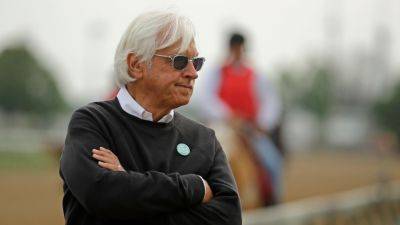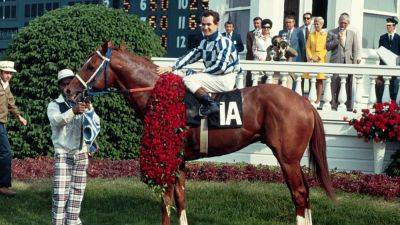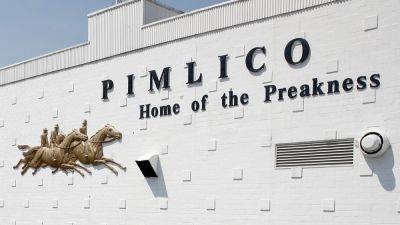What do horses feel at the Kentucky Derby? Mostly fear and pain
F or a horse, winning means nothing – they don’t even understand the concept. Yet every May US horse racing sells a narrative to draw in the public. The story goes that a group of young horses are locked in gritty pursuit of Triple Crown glory. But trophies, money and adulation are all human-made abstractions. The main concern for a horse is survival.
To be clear, what people think horses’ feel is not the same as what the horses themselves experience. This is what Dr Stephen Peters, a neuroscientist known for his work with both humans and horses, calls anthropomorphism: attributing human characteristics to an animal.
“The idea that horses love the event they compete in is something we’ve created. It’s a myth more for us than the horse,” Peters says.
Peters says a horse’s brain is not designed for abstract thinking. The human frontal lobe executes planning, strategy and organization, which are crucial ingredients in competitive sports. But “a horse’s brain is much more a motor and sensory organ than it is a thinking one,” Peters says.
In other words, horses don’t think like us because they can’t think like us. “Emotion is … more primitive and instinctual in a horse,” Peters writes in his book Evidence Based Horsemanship, which he co-authored with reputed trainer Martin Black. “They are constantly asking: ‘Am I safe?’”
Rich Strike “didn’t know he’d won,” the Kentucky Derby last year, says Black. He goes on to explain that what the colt did feel was the need to fight after the race, something we saw as an outrider struggled to control him.
“The horse was having a chemical reaction. And had he been given more freedom maybe that [fight response] doesn’t happen,” Black says.
That “chemical reaction” was a hurricane of





